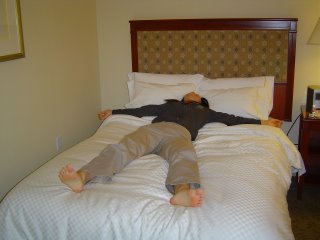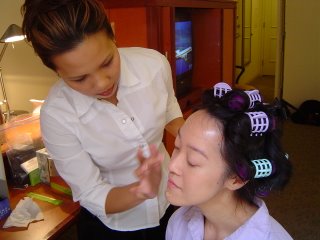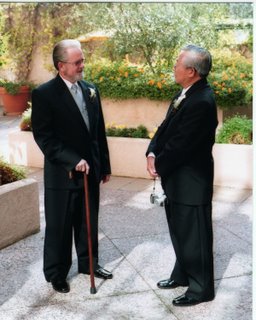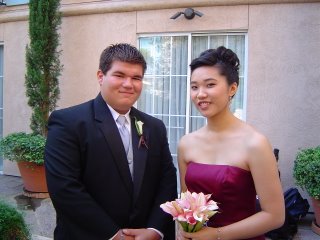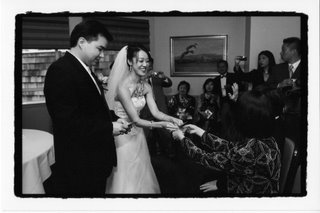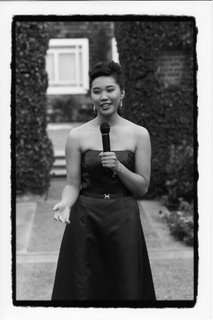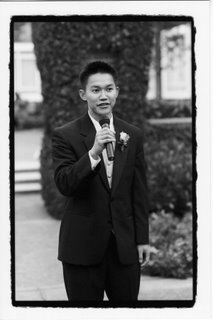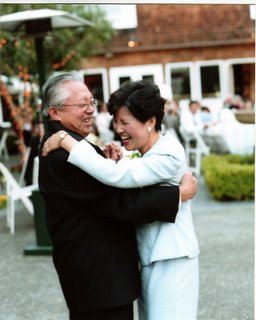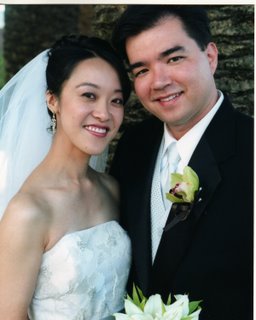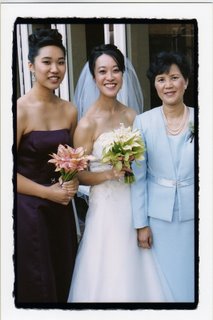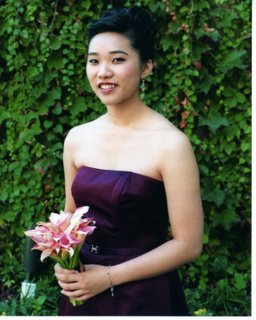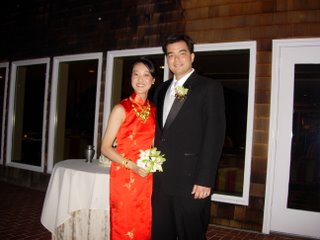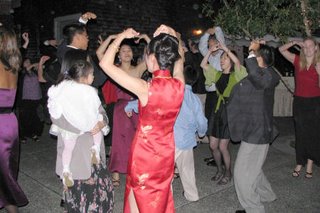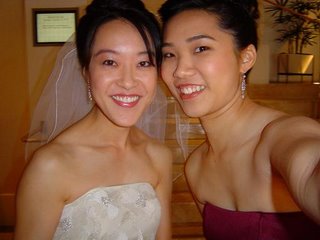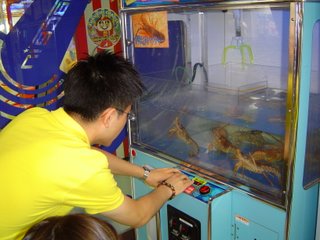 That would be Jeff fishing for a giant shrimp at only 100 yen a play! Complete with preparation directions above the tank
That would be Jeff fishing for a giant shrimp at only 100 yen a play! Complete with preparation directions above the tankGiant shrimp aside, there were other things that i observed and heard that I found counter-intuitive.
- My host mom asked me on my first day staying with them to avoid using the AC unless absolutely necessary because electricity expensive. Reasonable enough, right? I found it odd, however, that she'd be willing to dish out the extra money to keep two toilet seats in the house warmed 24/7. Maybe you're the type of person that doesn't like sitting on cold toilet seats, but personally, i find sitting on warm toilet seats reminiscent of the thought of, "Eww.. someone was just here..."
- As a soon to be Assistant Language Teacher in Japan, according to many orientations and emails from my predecessor, it is unacceptable to wear jeans to work. However, teachers often will dress nicely to work, then change once at school into track suits and wear them the whole day. Track suits! How are track suits more professional than jeans?!
- Women would rather buy cute high-heeled shoes that absolutely kill their feet, rather than flat, comfortable, non-attractive shoes. Whatever happened to health first?
- Most stores only sell women's shoes from size 22 to 24.5, which roughly translated i think, are sizes 5 - 8ish. So if you're one of the unfortunate souls whose shoe size is a 8.5 in America, you're not going to easily find shoes that are size 25 or higher without a hefty price, as only large department stores only carry those sizes at $100 or more (trust me, i've looked...@_@). Is Japan not aware that not every woman living in Japan is the size of a 12-year-old? There were definitely people I saw there who were taller than me who would need shoes larger than 25. Oh, and get this: sizes 25 and over are considered "Model sizes." What a laugh. I guess that means either 1) most models have big feet, and hence are probably taller, which according to the Japanese shoe system, makes about 2% of the population even eligible to be a model, or 2) I should be a model in Japan!
As if all that and other stuff in between wasn't odd enough, I was flipping through my JET Handbook today when i found more shocking stuff. Like what, you say? Like...
- "The place of honor in a car is the seat directly behind the driver. In the elevator, the rear left corner of the elevator (when looking in the elevator)."
- Regarding funerals: "At the wake, if there is a reception desk, offer your condolence gift consisting of cash in a special envelope or place it in the enamel tray next to the register and sign in. For funerals, giving old notes is symbolic of being caught unprepared for an untimely death."
- Regarding births (which i didn't know even though my host sister had a baby while i was in Kyoto): "Gift-Giving Tradition: Gifts (clothes, toys, cash) given 1-2 weeks after a healthy baby's birth. Gift-Returning Tradition: A simple gift (wooden bowl or cup) with the baby's name on it, or a thank you note. Comments: Make sure the baby has been born healthy before giving a gift." Uhm, what if it's not born healthy? It doesn't deserve presents?? *looking around*...
- Regarding hospital visits: "Gift-Giving Tradition: Cut flowers, books etc. Don't give plants (their roots imply a long hospital stay) or camellias (the way the blossoms drop reminds Japanese people of death)." What?!!
While that's all that i can find for now, I'm sure there'll be even more oddities as i learn my way around the sticks. Stay tuned for more puzzling random customs of the Japanese (^^)v
- My host mom asked me on my first day staying with them to avoid using the AC unless absolutely necessary because electricity expensive. Reasonable enough, right? I found it odd, however, that she'd be willing to dish out the extra money to keep two toilet seats in the house warmed 24/7. Maybe you're the type of person that doesn't like sitting on cold toilet seats, but personally, i find sitting on warm toilet seats reminiscent of the thought of, "Eww.. someone was just here..."
- As a soon to be Assistant Language Teacher in Japan, according to many orientations and emails from my predecessor, it is unacceptable to wear jeans to work. However, teachers often will dress nicely to work, then change once at school into track suits and wear them the whole day. Track suits! How are track suits more professional than jeans?!
- Women would rather buy cute high-heeled shoes that absolutely kill their feet, rather than flat, comfortable, non-attractive shoes. Whatever happened to health first?
- Most stores only sell women's shoes from size 22 to 24.5, which roughly translated i think, are sizes 5 - 8ish. So if you're one of the unfortunate souls whose shoe size is a 8.5 in America, you're not going to easily find shoes that are size 25 or higher without a hefty price, as only large department stores only carry those sizes at $100 or more (trust me, i've looked...@_@). Is Japan not aware that not every woman living in Japan is the size of a 12-year-old? There were definitely people I saw there who were taller than me who would need shoes larger than 25. Oh, and get this: sizes 25 and over are considered "Model sizes." What a laugh. I guess that means either 1) most models have big feet, and hence are probably taller, which according to the Japanese shoe system, makes about 2% of the population even eligible to be a model, or 2) I should be a model in Japan!
As if all that and other stuff in between wasn't odd enough, I was flipping through my JET Handbook today when i found more shocking stuff. Like what, you say? Like...
- "The place of honor in a car is the seat directly behind the driver. In the elevator, the rear left corner of the elevator (when looking in the elevator)."
- Regarding funerals: "At the wake, if there is a reception desk, offer your condolence gift consisting of cash in a special envelope or place it in the enamel tray next to the register and sign in. For funerals, giving old notes is symbolic of being caught unprepared for an untimely death."
- Regarding births (which i didn't know even though my host sister had a baby while i was in Kyoto): "Gift-Giving Tradition: Gifts (clothes, toys, cash) given 1-2 weeks after a healthy baby's birth. Gift-Returning Tradition: A simple gift (wooden bowl or cup) with the baby's name on it, or a thank you note. Comments: Make sure the baby has been born healthy before giving a gift." Uhm, what if it's not born healthy? It doesn't deserve presents?? *looking around*...
- Regarding hospital visits: "Gift-Giving Tradition: Cut flowers, books etc. Don't give plants (their roots imply a long hospital stay) or camellias (the way the blossoms drop reminds Japanese people of death)." What?!!
While that's all that i can find for now, I'm sure there'll be even more oddities as i learn my way around the sticks. Stay tuned for more puzzling random customs of the Japanese (^^)v
